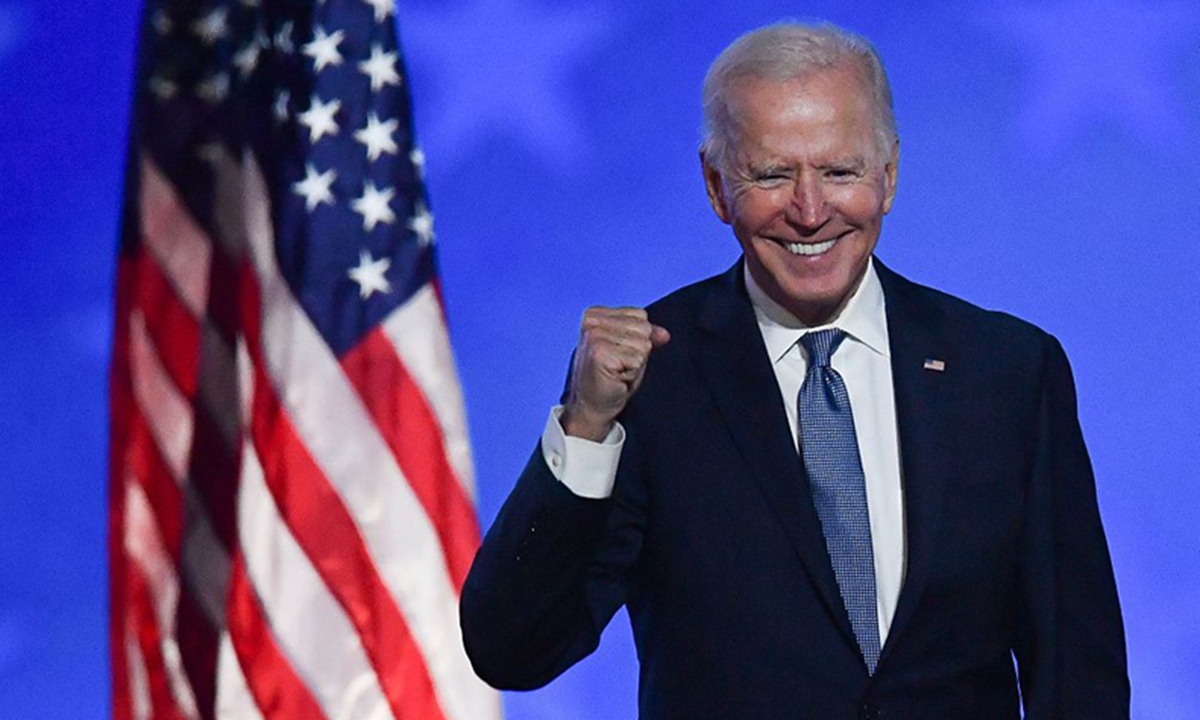Will US under Biden still count on Five Eyes in its anti-China cause?
By Zhang Tengjun Source: Global Times Published: 2020/11/17 23:08:40

Photo: VCG
The opposition Conservative Party of Canada has called on Ottawa to take a harder stance on China and Huawei technologies, according to Canadian media reports. Leader of the party Erin O'Toole said that in the face of a harsh response from China, Canada will need to work with its Five Eyes allies to counteract Beijing's influence.Washington has always been the backbone of its allies in their anti-China cause - especially these past few years under the Trump administration. Now, with a new administration about to be sworn in, whether or not the new president will strengthen the Five Eyes intelligence alliance to suppress China is worth paying close attention to.
Biden is known for uniting and valuing US allies. He believes this will enable the US to achieve its diplomatic goals more effectively. Therefore, the Five Eyes alliance will undoubtedly be a platform that he relies on and supports.
Analysts anticipate that Biden will strengthen intelligence sharing and cooperation and coordinating on China-related issues with the Five Eyes.
To what extent the rest members of the alliance will coordinate with the US' suppression on China will be in part determined by the new administrations' specific policies.
The Biden administration will not take its hands off China's technological boom. In recent years, there has been a trend for the US to encourage Five Eyes alliance members to find faults with China - anything found is exploited by the US for its own gains to bash Beijing.
Some members in the alliance have been willing to act as Washington's little lackeys, notably Canberra and Ottawa. Given the feud between Canada and China over the Meng Wanzhou case and the arrest of two Canadians, Ottawa hopes to obtain more diplomatic support from the US. As for Canberra, its understanding of China has changed a lot: it now views China's influence overseas, especially in the southern Pacific, as a threat to its regional dominance. So it keeps pushing forward to confront Beijing with Washington's backing and blessings.
London and Wellington, by contrast, have been relatively restrained. New Zealand did not join the rest four in a joint declaration condemning China's national security legislation for Hong Kong. The government under Jacinda Ardern is striking a delicate balance between China and its Western allies as it targets an export-led recovery from the economic damage of COVID-19. The UK, which is embattled by post-Brexit problems and the ranging pandemic, has recently been quiet about China.
The US has been aware that the Five Eyes alliance is not enough to contain China's rise and it is eyeing more partners. In October, the Five Eyes alliance, together with Tokyo and New Delhi, issued a joint statement decrying end-to-end encryption, claiming that it prevents law enforcement. What they propose, however, would leave all device users subject to government monitoring, contradicting their accusation against Beijing that Chinese tech companies use encryption on commercial products with a secret backdoor. This shows that "national security" is just an excuse that Washington and its allies use to suppress China.
There have been discussions about whether Tokyo and New Delhi will become a sixth and seventh "eye".
Japan's Defense Minister, Taro Kono, told Nikkei Asian Review in August that, "Japan can get closer [to the alliance], even to the extent of it being called the 'Six Eyes'." Furthermore, media on the subcontinent also suggested that India "join the Five Eyes network" since "a network of intel sharing on China is crucial now."
If Japan joins, it is more likely to take a free ride, as its counter-intelligence capability is relatively weak, and can hardly make effective contributions to the alliance. India's joining may provide some value to the alliance as it would enable the Five Eyes to share intelligence in South Asia. Nonetheless, whether India will give way to its claimed dominance in South Asia and risk its relations with both China and Russia remains questionable.
The Five Eyes alliance is a by-product of the Cold War, and should have ended its mission a long time ago. It is still functioning because of the fixated Cold War mentality of certain countries. The international community should reject such a group. After all, this jeopardizes the existing international order and invites ideological confrontations.
The author is an assistant research fellow at the China Institute of International Studies. opinion@globaltimes.com.cn
Posted in: VIEWPOINT